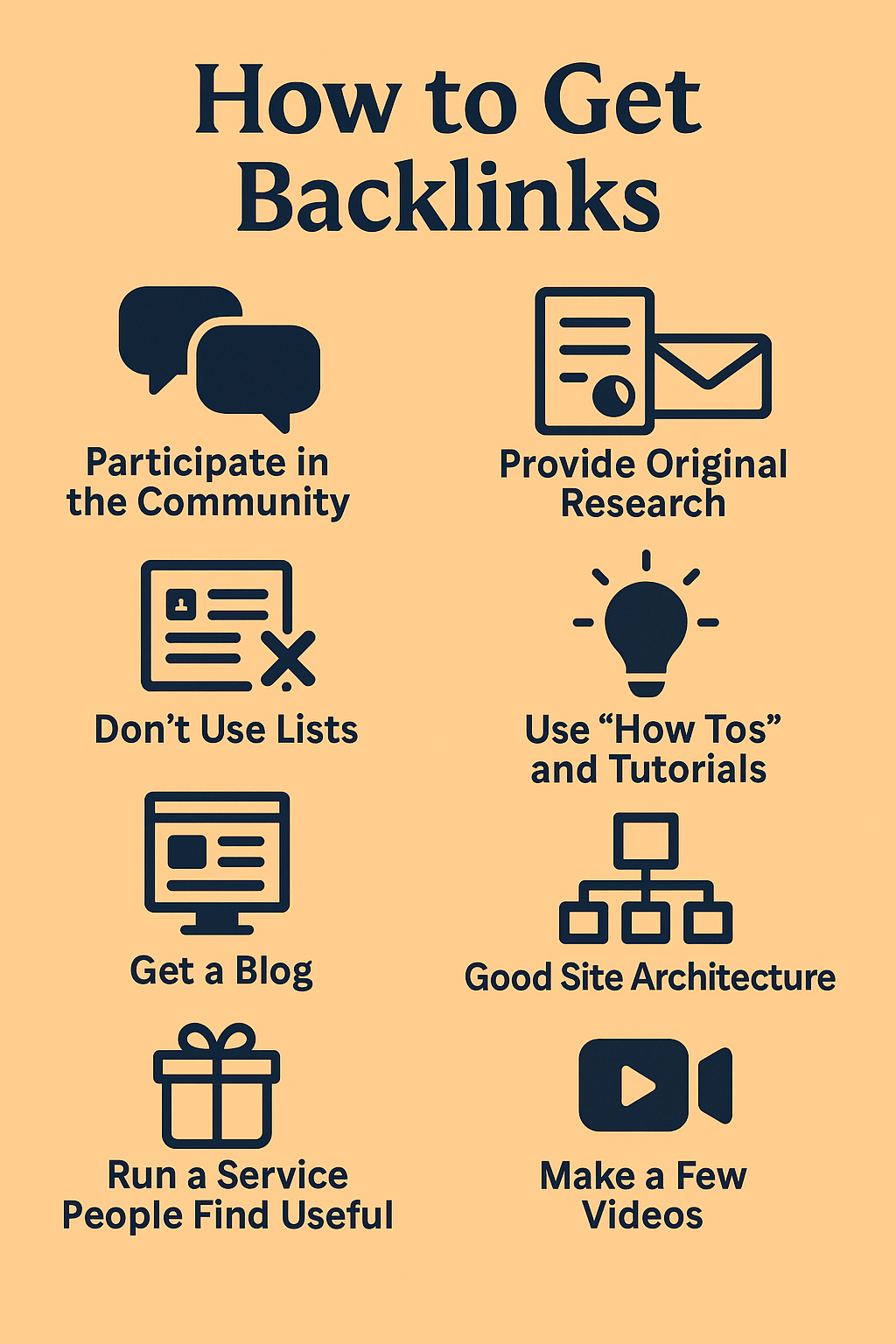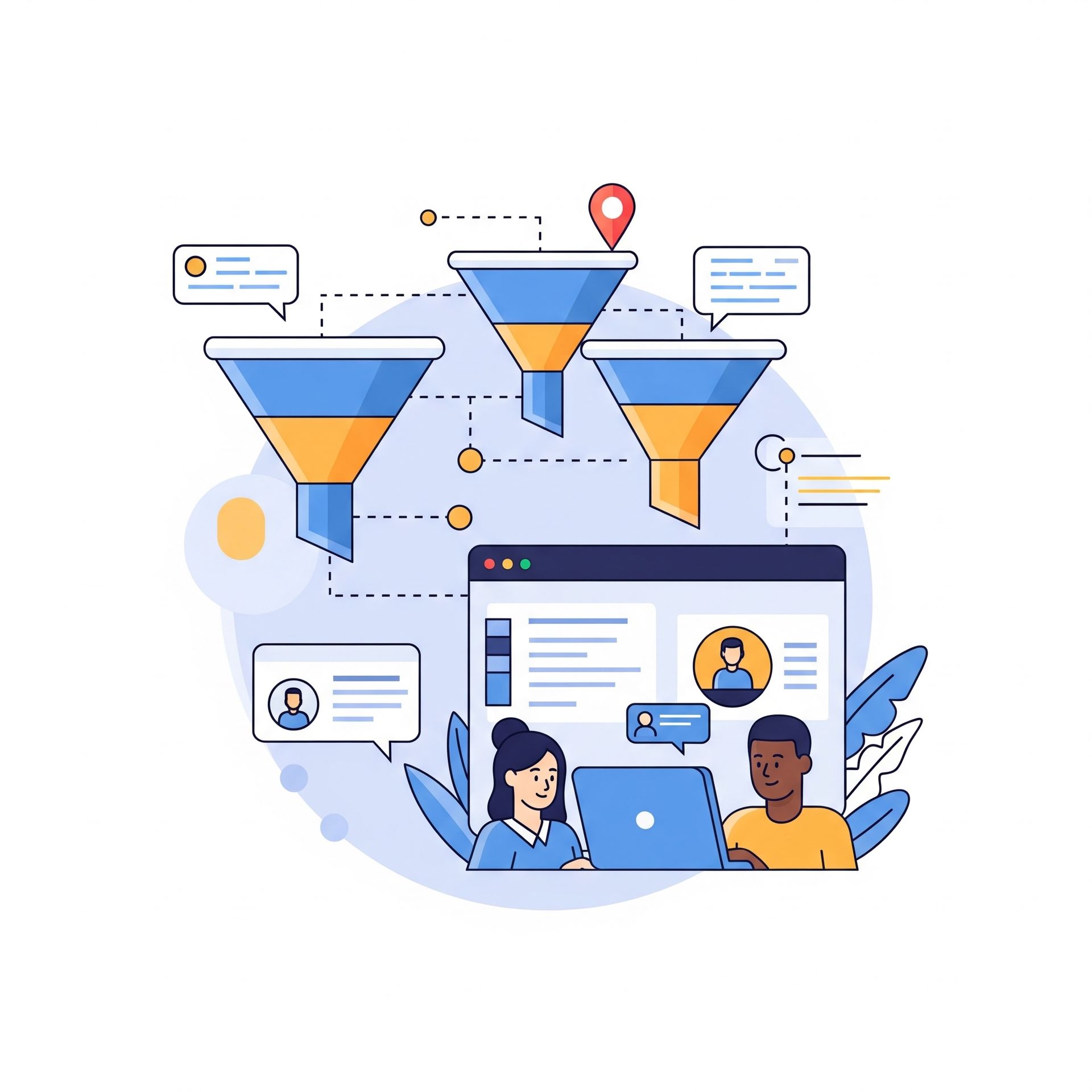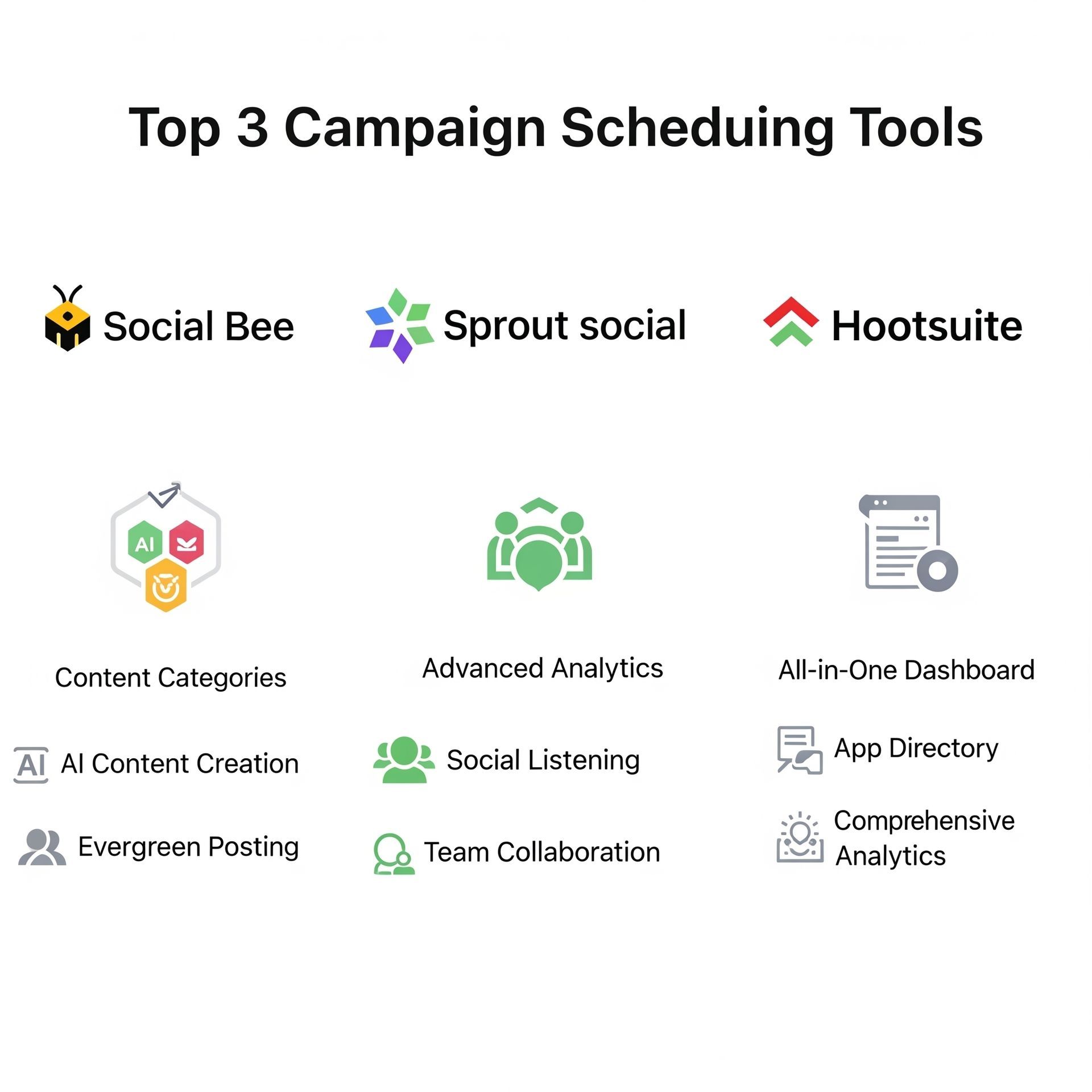How to impliment a backlink strategy to improve your websites SEO.
If you're serious about building backlinks that drive long-term traffic and boost your SEO, forget controversy and gimmicks. Focus on value. Here's how to build real backlinks by showing up, giving back, and being genuinely helpful.
Google Search Console has a great video explaining how to build backlinks so I wanted to share their insights, and some of my own with you.
What are backlinks and why are they important?
Backlinks are simply links from another website back to your website and are one way that Google determines if your website is a good authority and therefore how you should rank on a google search.
Backlinks demonstrate credibility and should be a core part of evry companies SEO strategy but here's the issue.
Getting backlinks is hard. You need to convince a website owner that they should link to you.
So how do you build backlinks?
1. Show Up in the Community
One of the easiest (and most overlooked) ways to earn backlinks is to be visible in your industry’s community. This is done by:
- Answering questions on forums, Slack groups, Reddit, or niche platforms. Although time consuming, if you engage with the online community they will begin to recognise you as an authority and link to your content.
- Join conversations on LinkedIn, Twitter/X, or the comments section of relevant blogs and provide your unique insights which provide value to others in your industry.
When people see you consistently helping out, they’ll naturally start referencing and linking to your content.
2. Publish Original Research
Do the work others haven’t. Dig into a niche topic, collect data, and share your findings in a well-structured post. People love to cite original stats and insights especially when they're not available anywhere else. You may like to run an A/B test and compare findings in a blog post for example.
Tip: Package your findings with graphs, charts, or downloadable templates to increase shareability.
3. Use Newsletters and Social Platforms Strategically
Think of your blog or newsletter as where others go to learn from you. Share your content through newsletters, both your own and others'. You then need to engage with people so they read your newsletter so participate in blog comment sections and social media not to spam links, but to add insight.
Think: Where do my customers and industry peers spend time online? Show up there regularly.
4. Avoid Overdone “Listicles”
Click-Bait articles like “10 Ways to Do X” are over-saturated and offer little new value. Google doesn't like these as they shamlessly encourage people to click on your article instead of providing useful insights. Instead, focus on deeper, long-tail content like:
- How-tos and step-by-step tutorials
- Case studies and walkthroughs
- Problem-solving guides for specific pain points
These attract more qualified traffic and links over time.
5. Start a Blog (and Treat It Like an Asset)
As previously mentioned your blog is more than just a marketing tool. Google referrs to a blog as your online business card and I love this analogy. Use your blog to:
- Showcase expertise
- Document learnings
- Share tools and insights
- Establish authority in your space
A consistent blog helps both your company and personal brand grow in credibility and provides content for you to share with your followers on social channels such as LinkedIn or Facebook.
6. Create Something Worth Linking To
People link to things they find helpful. That could be:
- A free tool
- An open-source plugin
- A resource list
- A community service
- A downloadable template
Solve a small but common problem, and people will link to you over and over again. Github is full of code which people have created and shared for free. If code is not your thing just consider what you can do to help your target clients. For example if you are a Tax Accountant consider a resource which helps people manage their tax bill or if you are a Lawyer is there a resource list that can help people in the sector you work in?
7. Don’t Neglect Technical SEO
Now this is slightly controversial because of the rise in GEO which I will discuss in our next blog. That said SEO is current and should not be neglected since great content can’t earn links if your site can’t be crawled. Make sure:
- Google can reach and index every page.
- Your site architecture is clean and logical
- You’re using internal links wisely
- Important pages aren’t buried too deep
Tip: A SEO Audit can seriously help with this, just contact us if you are interested.
8. Make a Few Videos
Videos are a fast, effective way to build credibility. This is certainly not my natural strength but put yourself out there to:
- Help people understand your expertise
- Are easy to share
- Can drive traffic back to your site
- Support visual learners
You don’t need fancy gear, just clarity, value, and consistency (although a good mic and camera will certainly help engage people).
Final Thought
Getting backlinks isn’t about chasing trends or spamming people begging for a link. It’s about building trust. Show up, be helpful, share what you know, and create things that people genuinely want to share.
One last thing: although Direct Digital specialise in Website SEO, we have some amazing partners who can help you create content including blog posts and videos so please do contact us for more information.




